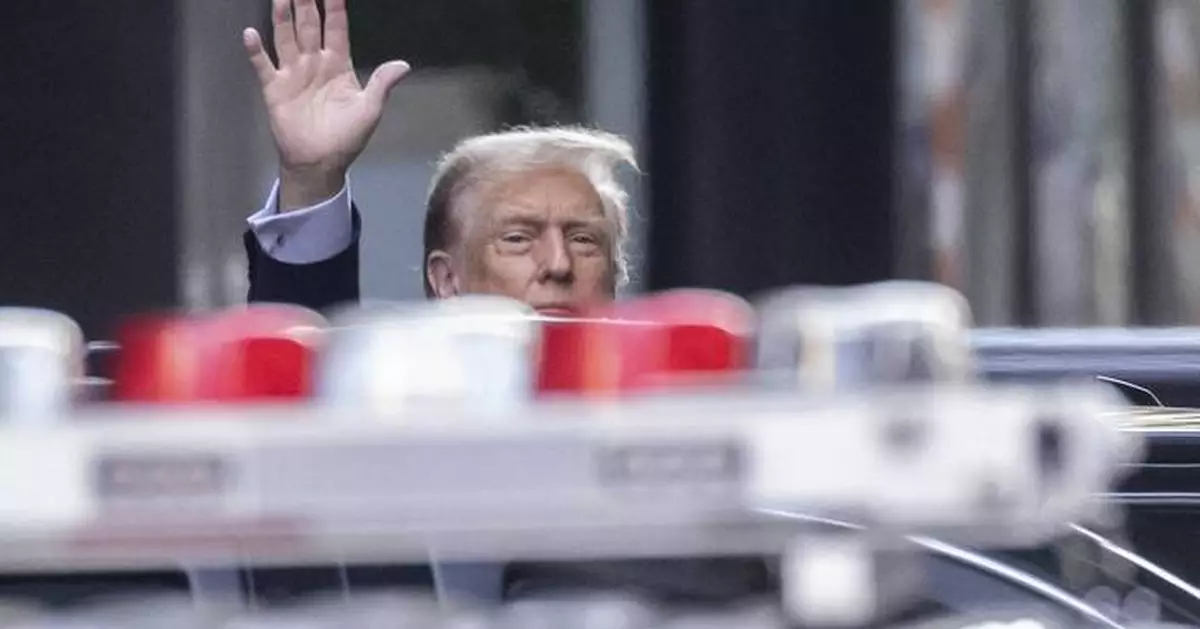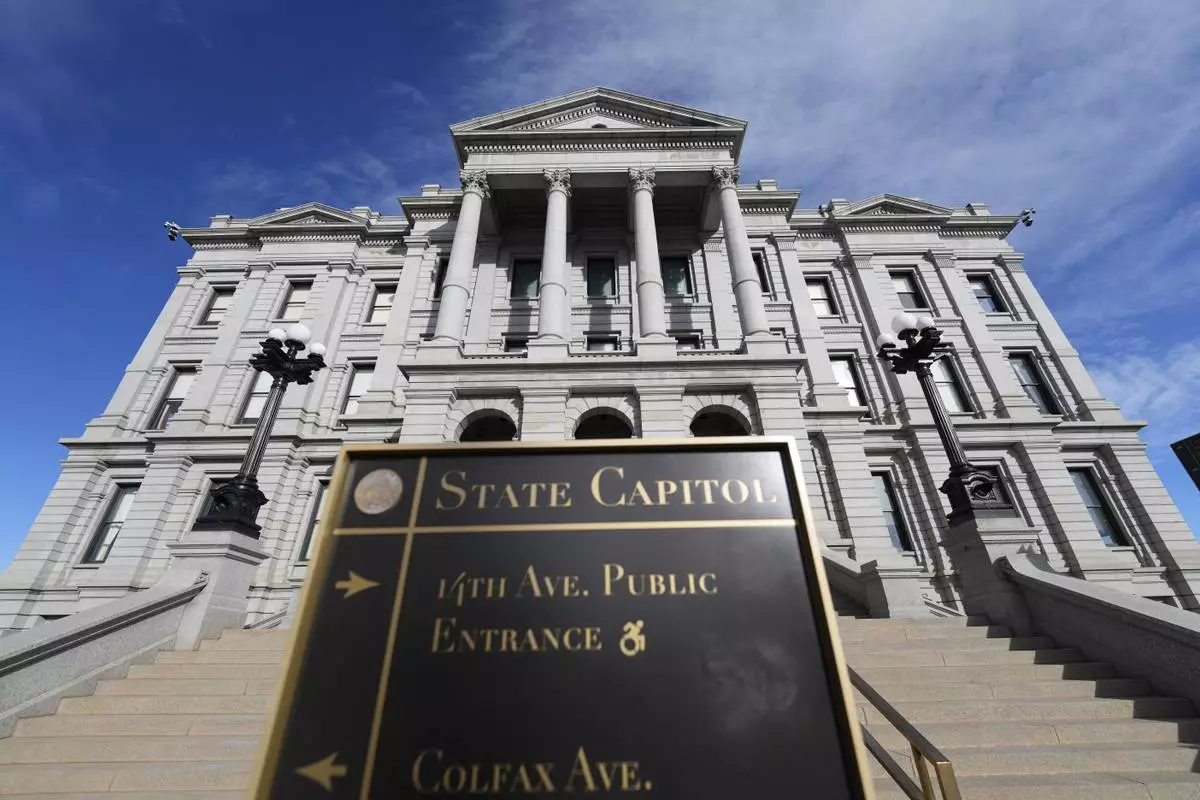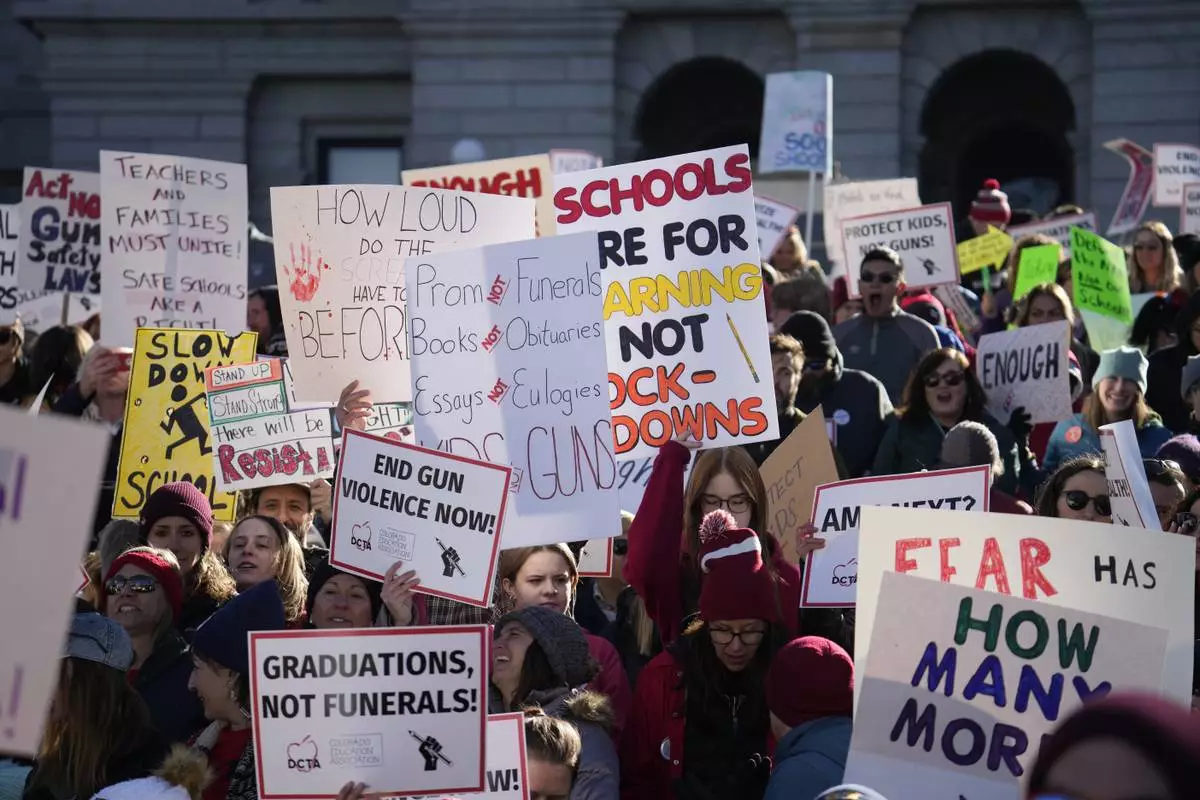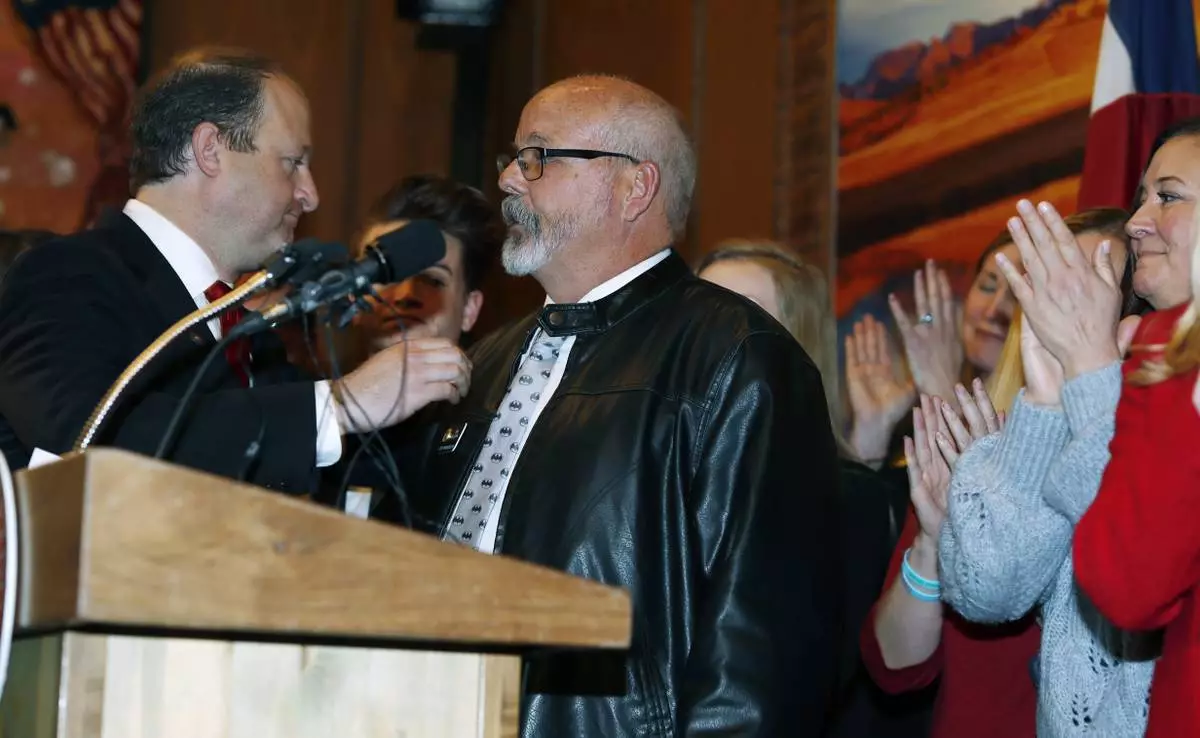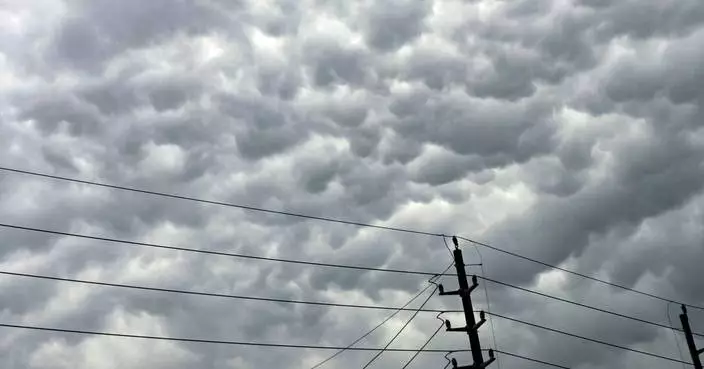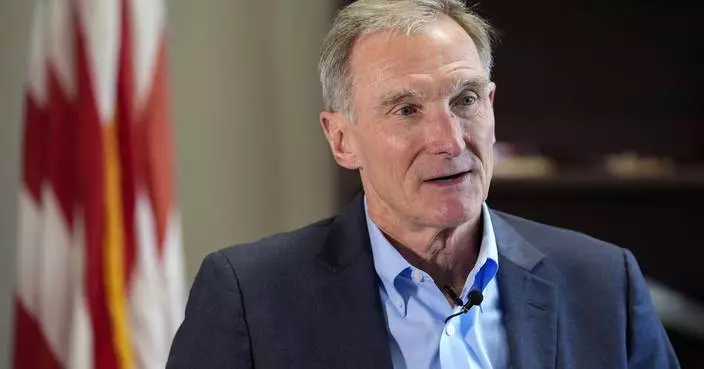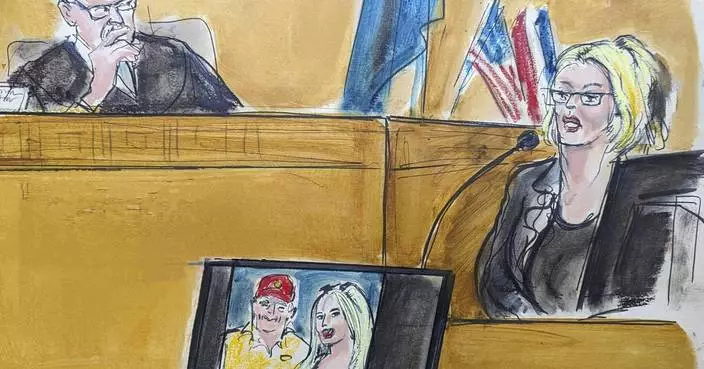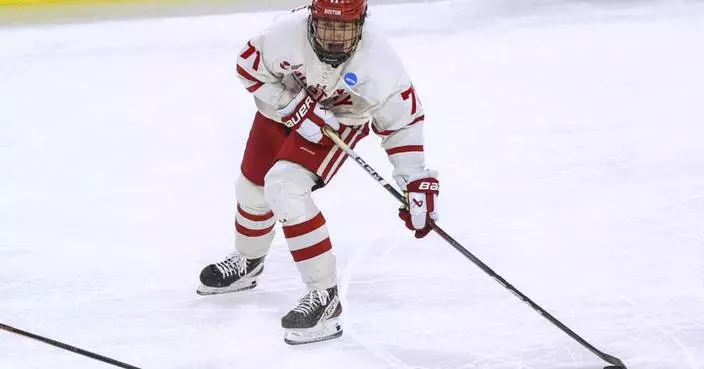NEW YORK (AP) — Defense lawyers in Donald Trump’s hush money trial dug Friday into assertions of the former publisher of the National Enquirer and his efforts to protect Trump from negative stories during the 2016 election.
David Pecker returned to the witness stand for the fourth day as defense attorneys tried to poke holes in his testimony, which has described helping bury embarrassing stories Trump feared could hurt his campaign.
Pecker has painted a tawdry portrait of “catch and kill” tabloid schemes — catching a potentially damaging story by buying the rights to it and then killing it through agreements that prevent the paid person from telling the story to anyone else.
The prosecution later called to the stand Rhona Graff, Trump’s former longtime executive assistant who has been described as his “gatekeeper,” and Gary Farro, a private client adviser who previously worked at First Republic, which was used by former Trump attorney and fixer Michael Cohen. Farro will continue his testimony Tuesday when the trial resumes, with Monday being a long-scheduled day off.
Testimony from the prosecution's three witnesses capped a consequential week in the criminal cases the former president is facing as he vies to reclaim the White House in November.
The charges center on $130,000 in payments that Trump’s company made to his then-lawyer, Cohen. He paid that sum on Trump’s behalf to keep porn actor Stormy Daniels from going public with her claims of a sexual encounter with Trump a decade earlier. Trump has denied the encounter ever happened.
Prosecutors say Trump obscured the true nature of those payments and falsely recorded them as legal expenses. He has pleaded not guilty to 34 felony counts of falsifying business records.
The case is the first-ever criminal trial of a former U.S. president and the first of four prosecutions of Trump to reach a jury.
Currently:
— Key moments from the Supreme Court arguments on Donald Trump’s immunity claims
— Trading Trump: Truth Social’s first month of trading has sent investors on a ride
— These people were charged with interfering in the 2020 election. Some are still in politics today
— Key players: Who’s who at Donald Trump’s hush money criminal trial
— The hush money case is just one of Trump's legal cases. See the others here
Here's the latest:
Donald Trump spoke to reporters with more energy than he had in past days after spending the day in the Manhattan courtroom where his hush money trial is being held.
The former president declared that the case was politically motivated and reaffirmed his willingness to debate President Joe Biden anytime, anywhere, even Friday night or at the White House.
Trump left for the day after speaking for a few minutes and didn’t take any questions from reporters on the way out of court. He’s expected to head back to Florida.
Trump exited the Manhattan courtroom where his hush money trial is being held, exhaling and with a stern expression. It marked the end of the trial's fourth day of witness testimony.
So far, prosecutors have called three witnesses.
Former National Enquirer publisher David Pecker spent about 10 hours on the stand over the course of four days.
Then Trump’s longtime executive assistant Rhona Graff answered questions for about 30 minutes.
The current witness, Cohen’s former banker Gary Farro, was on the stand for a little under an hour Friday and will return when the trial resumes Tuesday, with Monday being a long-scheduled day off.
Gary Farro detailed the step-by-step process of helping Donald Trump's former attorney Michael Cohen create an account for his limited liability company while testifying Friday in the Trump's hush money trial in Manhattan.
According to Farro, Cohen said Resolution Consultants, which he opened in September 2016, was related to real estate. In fact, the LLC was formed to facilitate the planned purchase of Karen McDougal’s story rights from American Media. That deal never went through.
Prosecutors have shown emails in which Cohen describes the opening of the account as an “important matter.”
Farro said that since the account was never funded, it was never technically opened. Instead, Cohen pivoted to starting another account for another LLC — Essential Consultants — which he used to make the $130,000 payment to Stormy Daniels. Similarly, Farro said Cohen led him to believe that firm would be involved in real estate consulting.
The prosecution on Friday called its third witness in former president Donald Trump's hush money trial to testify.
Gary Farro works at Flagstar Bank as a private client adviser and was previously at First Republic Bank, which was used by former Trump attorney and fixer Michael Cohen.
Farro, testifying pursuant to a subpoena, said Cohen had several personal bank accounts at First Republic when Farro took over the client relationship in 2015.
“I was told that I was selected because of my knowledge and because of my ability to handle individuals that may be a little challenging,” Farro said.
“Frankly, I didn’t find him that difficult,” he added.
After Rhona Graff concluded her testimony Friday in Donald Trump's hush money trial in Manhattan, Trump spoke briefly to his former executive assistant as she left the stand.
The former president appeared to reach out to her with his hand as an officer guided her away from the witness stand past the defense table.
Trump’s lawyers were at the bench, talking with Judge Merchan, when Trump stood up and engaged with Graff.
Soon after, Trump left court for a break. He was carrying the thick stack of papers he brought in with him in the morning. He gave a thumbs up as he left and ignored a shouted question from a reporter about Stormy Daniels. He returned several minutes later.
Rhona Graff, Donald Trump's longtime executive assistant, was called to the stand Friday in the former president's hush money trial in Manhattan.
Graff started working for Trump in 1987 and left the Trump Organization in April 2021. She has been described as his gatekeeper and right hand. She was among several people involved in keeping his records.
Former National Enquirer publisher David Pecker, the first prosecution witness called, testified Thursday that Graff was often the conduit for his communications with Trump, routing his calls and summoning him to a Trump Tower meeting on Jan. 6, 2017. At the meeting, the ex-publisher said, he and Trump discussed some of the hush money arrangements at issue in the case.
Graff testified that porn actor Stormy Daniels was once at Trump’s offices in Trump Tower.
“I have a vague recollection of seeing her in the reception area” one time, Graff said.
The date of the visit wasn’t immediately clear.
Graff said she assumed Daniels was there to discuss potentially being a contestant on one of Trump’s “Apprentice”-brand shows.
“You had heard President Trump say that he thought that she would be an interesting addition” to the cast, Trump lawyer Susan Necheles asked.
“It was part of the office chatter,” Graff said.
Former National Enquirer publisher David Pecker concluded his testimony Friday afternoon in Donald Trump's hush money trial in Manhattan.
Before he left the witness stand, however, prosecutor Joshua Steinglass elicited testimony pushing back on a defense suggestion that Pecker had changed his story about Trump thanking him at a Jan. 6, 2017 Trump Tower meeting for his help burying negative stories.
During cross-examination, Trump lawyer Emil Bove had shown Pecker notes from the first of two FBI interviews he gave in 2018. According to the notes, Pecker told investigators that Trump hadn’t shown gratitude at their meeting.
Pecker maintained that the FBI’s notes of the interview may have been wrong. And, as Steinglass noted, he told investigators in an interview a week later that Trump had thanked him “for handling” Karen McDougal’s affair claims and a Trump Tower doorman’s false rumor about him.
Pecker confirmed he later told a federal grand jury that Trump was “very grateful and these stories could have been very, very damaging.”
Asked by Steinglass if he had any confusion over whether that happened, Pecker replied: “No.”
While on a lunch break from his hush money trial in Manhattan, Donald Trump reacted on social media to Biden’s comment Friday that he’s willing to debate this fall.
Trump said on Truth Social that he thinks Biden “doesn’t really mean it.” He said if Biden is serious, they should debate next week or even Friday at the Manhattan courthouse on national television, saying “I’ll wait around.”
Trump on the way into court on Friday complained he was in court instead of in Florida with his wife for her birthday and said he planned to fly to Florida after the trial wrapped for the day.
Before breaking for lunch Friday, prosecutors in Donald Trump's hush money trial in Manhattan clawed back at the defense’s contention that an arrangement with the National Enquirer wasn’t unique to Trump, eliciting testimony from former publisher David Pecker that underscored the unusual nature of their deal.
“Is it standard operating procedure for AMI to be consulting with a presidential candidate’s fixer about amendments to a source agreement?” Steinglass asked, using initials for the tabloid’s parent company. “No,” Pecker responded.
Several similar questions followed suit, with Pecker acknowledging that he had not previously sought out stories and worked the company’s sources on behalf of a presidential candidate, nor allowed political fixers close access to internal decision-making.
“It’s the only one,” Pecker said.
As court broke for lunch, Donald Trump stopped to confer with aide Jason Miller just outside the courtroom doors at his hush money trial Friday in Manhattan. He left without making any remarks to reporters waiting nearby.
Prosecutor Joshua Steinglass had begun conducting what the legal world calls “redirect” examination — a follow-up round of questioning in response to what defense lawyers asked former National Enquirer publisher David Pecker. The defense's cross-examination of that key witness ended earlier Friday.
And the defense can then conduct a “recross.” The sides can go back and forth, but they generally can’t just re-ask questions or delve into new topics that weren’t raised in prior questioning.
The defense's cross-examination of former National Enquirer publisher David Pecker in Donald Trump's hush money trial in New York ended around midday Friday, his fourth day on the witness stand.
As Trump lawyer Emil Bove wrapped up his cross-examination, Pecker said, “I’ve been truthful, to the best of my recollection.”
Bove earlier argued that Pecker’s testimony has been inconsistent with statements to federal prosecutors in 2018.
Pecker testified that Trump thanked him for his help handling potential news stories involving former Playboy model Karen McDougal and a Trump Tower doorman, during a White House visit in 2017.
But Bove said Pecker previously told federal authorities Trump did not express any gratitude at the meeting. Pecker stuck Friday to the story he has given in court.
In the most confrontational moment so far Friday in Donald Trump's hush money trial, defense lawyer Emil Bove said former National Enquirer publisher David Pecker's testimony has been inconsistent with statements to federal prosecutors in 2018.
Pecker testified that Trump thanked him for his help handling potential stories involving former Playboy model Karen McDougal and Dino Sajudin, a Trump Tower doorman, during a White House visit on Jan. 6, 2017.
But according to notes cited by Bove in court, Pecker had previously told federal authorities that Trump did not express any gratitude to him or American Media during the meeting.
Pecker stuck Friday to the story he has given in court.
“I know what the truth is,” he said.
A lawyer for Donald Trump in his hush money trial turned Friday to the 2016 deal the National Enquirer’s parent reached with former Playboy model Karen McDougal.
The $150,000 agreement gave American Media exclusive rights to McDougal’s account of any relationship with “any then-married man.” McDougal claims she and Trump had an affair. Trump denies it.
The contract also called for McDougal to do work for various American Media titles. Former Enquirer publisher David Pecker earlier testified the provision was really about keeping McDougal’s story from becoming public and influencing Trump’s chances at the presidency.
But under questioning Friday from Trump lawyer Emil Bove, Pecker added that American Media had pitched itself as a venue to help McDougal restart her career.
When American Media signed its agreement with her, “you believed it had a legitimate business purpose, correct?” Bove asked.
“I did,” Pecker said.
The company ended up running more than 65 stories in her name, he said.
McDougal’s story, and American Media’s deal with her, ultimately became public anyway, in a Wall Street Journal article four days before the 2016 election, after early and absentee voting had started.
The insistence of Donald Trump's defense in his hush money trial to refer to him as “President Trump,” even when describing events that took place before his election, is rankling prosecutors.
Trump’s lawyers said at the outset of the trial that they’d refer to their client as “president” out of respect for the office he held from 2017 to 2021.
But Assistant District Attorney Joshua Steinglass suggested Friday that using the title is anachronistic and confusing when tacked onto questions and testimony that involve things that happened while he was campaigning in 2015 and 2016.
“Objection. He wasn’t President Trump in June of 2016,” Steinglass noted after one such mention. The judge sustained the objection.
A lawyer for Donald Trump in the former president's hush money trial Friday got to a salacious story at the center of former National Enquirer publisher David Pecker’s earlier testimony.
Emil Bove brought out that the Enquirer’s parent company — not Trump or his former lawyer and fixer Michael Cohen — paid a former Trump Tower doorman $30,000 in 2015 for the rights to an unsubstantiated claim that Trump had fathered a child with an employee there.
Pecker testified earlier that the Enquirer thought the tale would make for a huge tabloid story if it were accurate but eventually concluded the story was “1,000% untrue” and never ran it. Trump and the woman involved both have denied the claims.
Bove asked Pecker whether he would run the story if it were true. Pecker replied: “Yes.”
Former National Enquirer publisher David Pecker has testified in Donald Trump's hush money trial that he hatched a plan with Trump and former Trump henchman Michael Cohen in August 2015 for the tabloid to help Trump’s presidential campaign.
But under questioning by Trump’s lawyer, Pecker acknowledged Friday there was no mention at that meeting of the term “catch-and-kill,” which describes the practice of tabloids purchasing the rights to story so they never see the light of day.
Nor was there discussion at the meeting of any “financial dimension,” such as the Enquirer paying people on Trump’s behalf for the rights to their stories, Pecker said.
Pecker also acknowledged that the National Enquirer had been running negative stories about Trump’s 2016 rival Hillary Clinton and her husband, former President Bill Clinton, long before the August 2015 meeting. Pecker previously testified that stories about the Clintons boosted sales of the supermarket tabloid.
Donald Trump's lawyer Emil Bove is getting under the hood of the National Enquirer’s editorial process, seeking to show the tabloid had its own incentives unrelated to any deal with Trump, in the fourth day of testimony in the former president's hush money trial.
To underscore his point, Bove pulled up five unflattering headlines that ran in 2015 about Ben Carson, who ran against Trump in the 2016 GOP primary. Bove noted the information was pulled from publicly available information published in other outlets, including The Guardian.
In his testimony, former Enquirer publisher David Pecker, on the stand for a fourth day, acknowledged that it was standard practice at the publication to recycle stories from other outlets with a new slant.
“Because it’s good, quick and cost efficient, and you would’ve done it without President Trump?” Bove asked.
“Um, yes,” Pecker replied.
Even by National Enquirer standards, testimony by its former publisher David Pecker at Donald Trump’s hush money trial this week has revealed an astonishing level of corruption at America’s best-known tabloid and may one day be seen as the moment it effectively died.
“It just has zero credibility,” said Lachlan Cartwright, executive editor of the Enquirer from 2014 to 2017. “Whatever sort of credibility it had was totally damaged by what happened in court this week.”
On Thursday, Pecker was back on the witness stand to tell more about the arrangement he made to boost Trump’s presidential candidacy in 2016, tear down his rivals and silence any revelations that may have damaged him.
A change in the court schedule means Donald Trump won’t be forced off the campaign trail next week to attend a hearing in his hush money criminal trial in New York.
Judge Juan M. Merchan moved a hearing on the former president’s alleged gag order violations to next Thursday, avoiding a conflict with his scheduled campaign events next Wednesday.
Merchan had initially set the hearing for next Wednesday, the trial’s regular off day. Trump is scheduled to hold campaign events that day in Michigan and Wisconsin. His lawyers have urged the judge not to hold any proceedings on Wednesdays so he can campaign.
The hearing — now set for 9:30 a.m. next Thursday, May 2 — pertains to a prosecution request that Trump be penalized for violating his gag order this week on four separate occasions.
The order bars Trump from making comments about witnesses and others connected to the case. Merchan is already mulling holding Trump in contempt of court and fining him up to $10,000 for other alleged gag order violations.
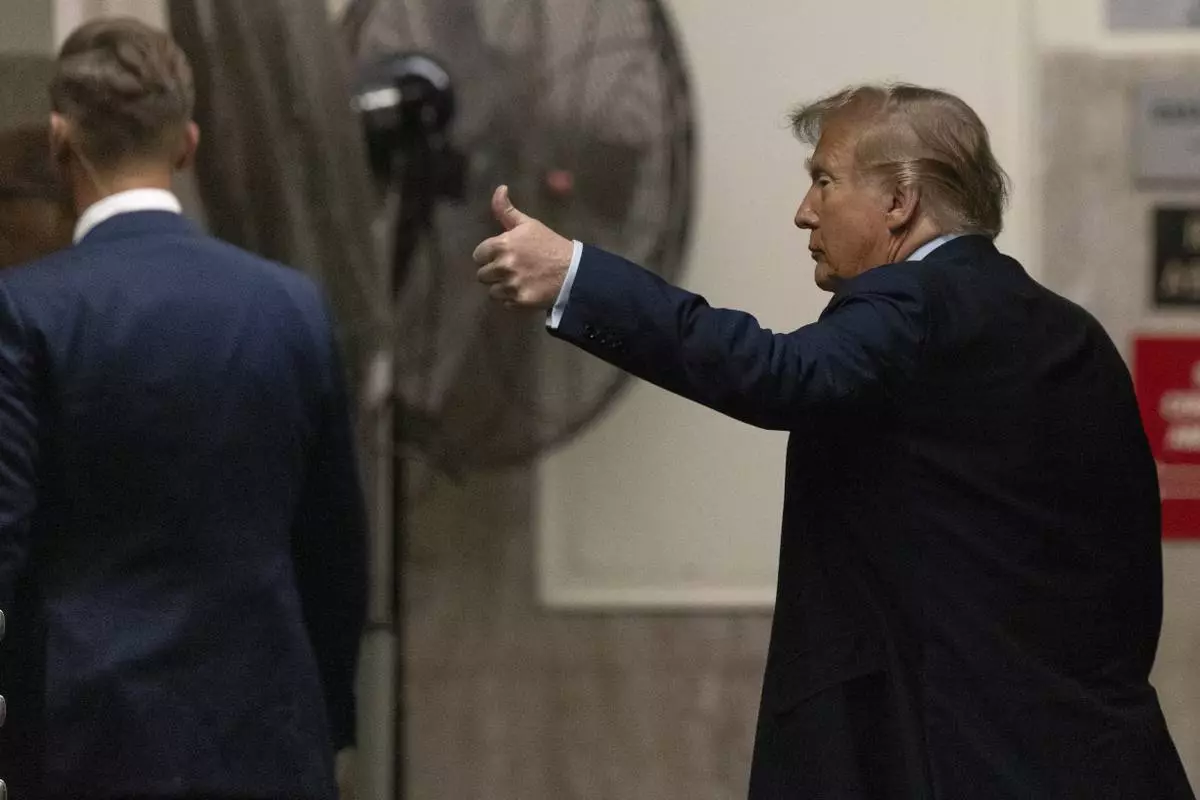
Former President Donald Trump exits the courtroom during a break at Manhattan criminal court before his trial in New York, Friday, April 26, 2024. (Jeenah Moon/Pool Photo via AP
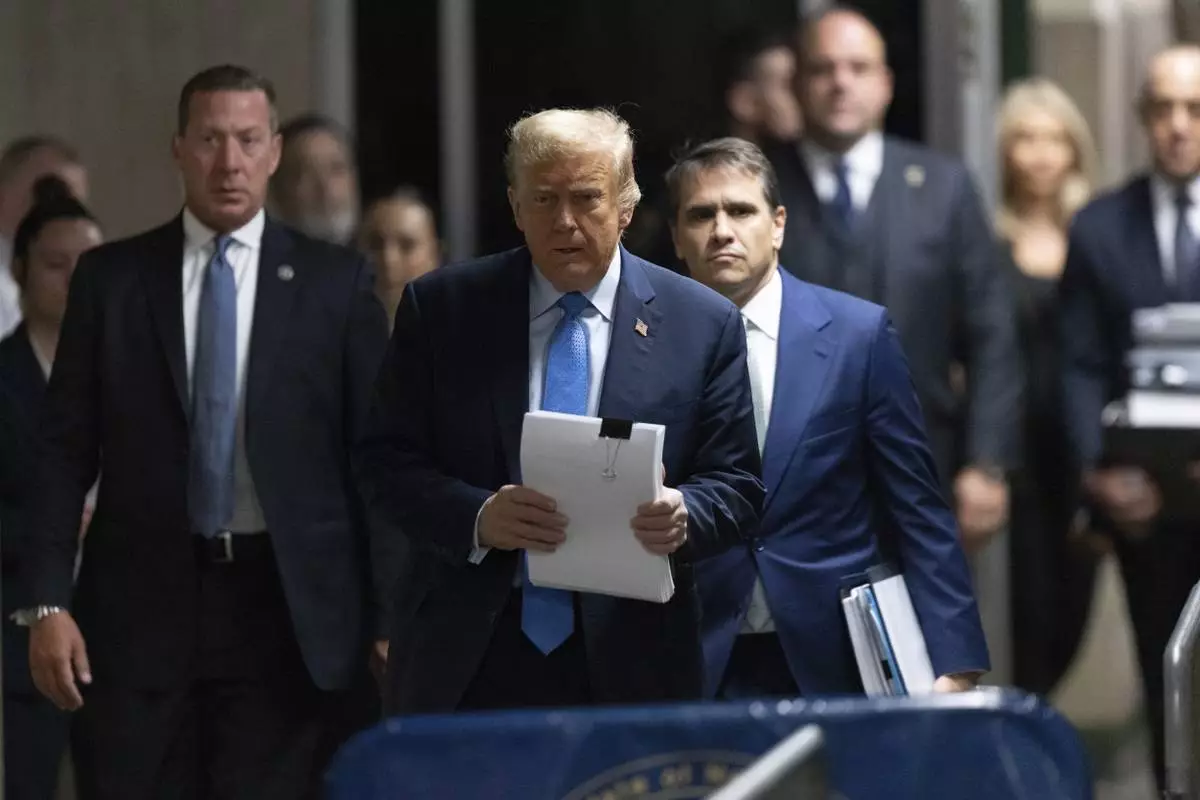
Former President Donald Trump arrives at Manhattan criminal court before his trial in New York, Friday, April 26, 2024. (Jeenah Moon/Pool Photo via AP)
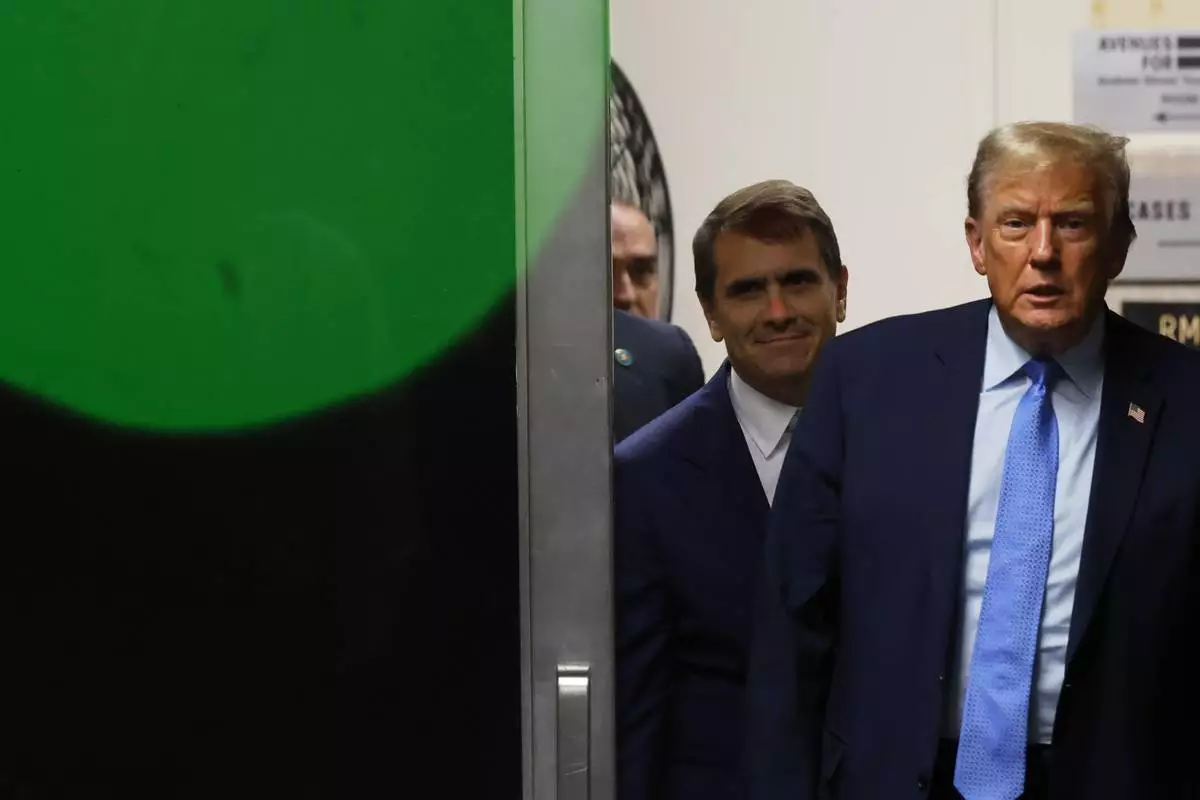
Former U.S. President Donald Trump returns to the courtroom after a lunch recess during his trial at Manhattan criminal court before his trial in New York, Friday, April 26, 2024. (Michael M. Santiago/Pool Photo via AP)
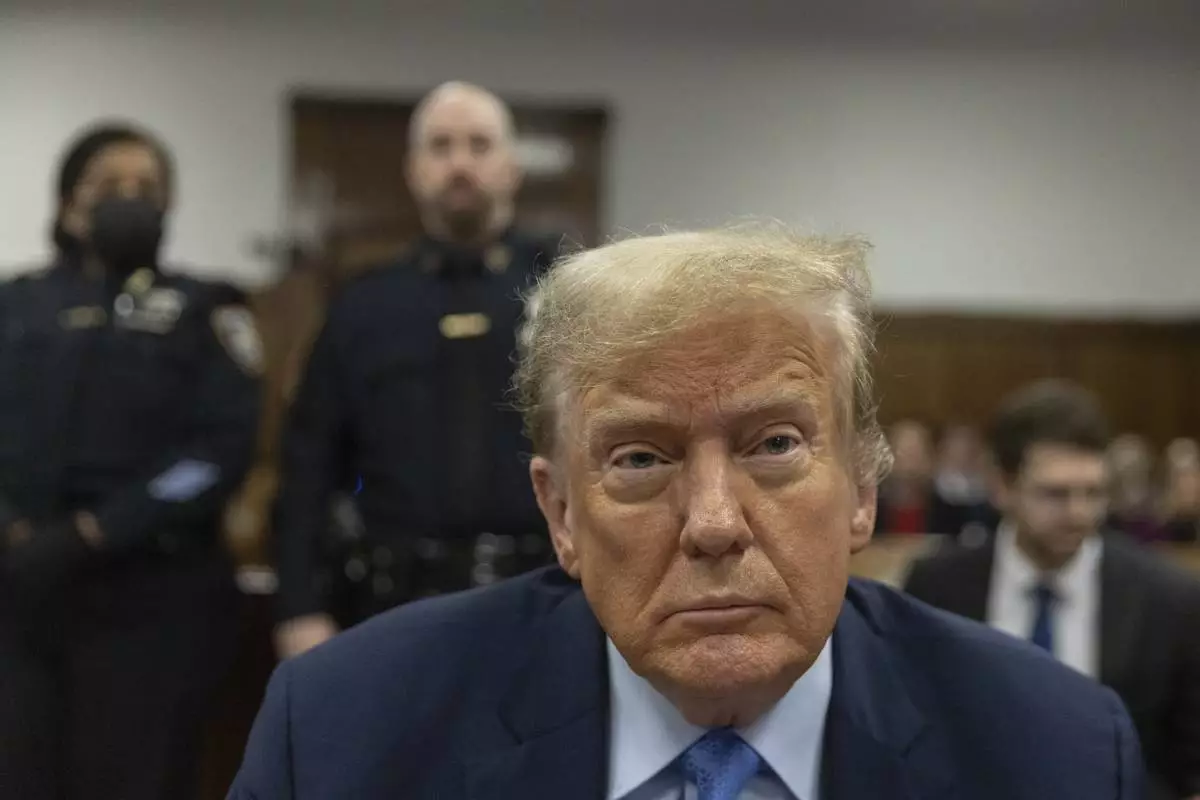
Former President Donald Trump appears at Manhattan criminal court before his trial in New York, Friday, April 26, 2024. (Jeenah Moon/Pool Photo via AP)
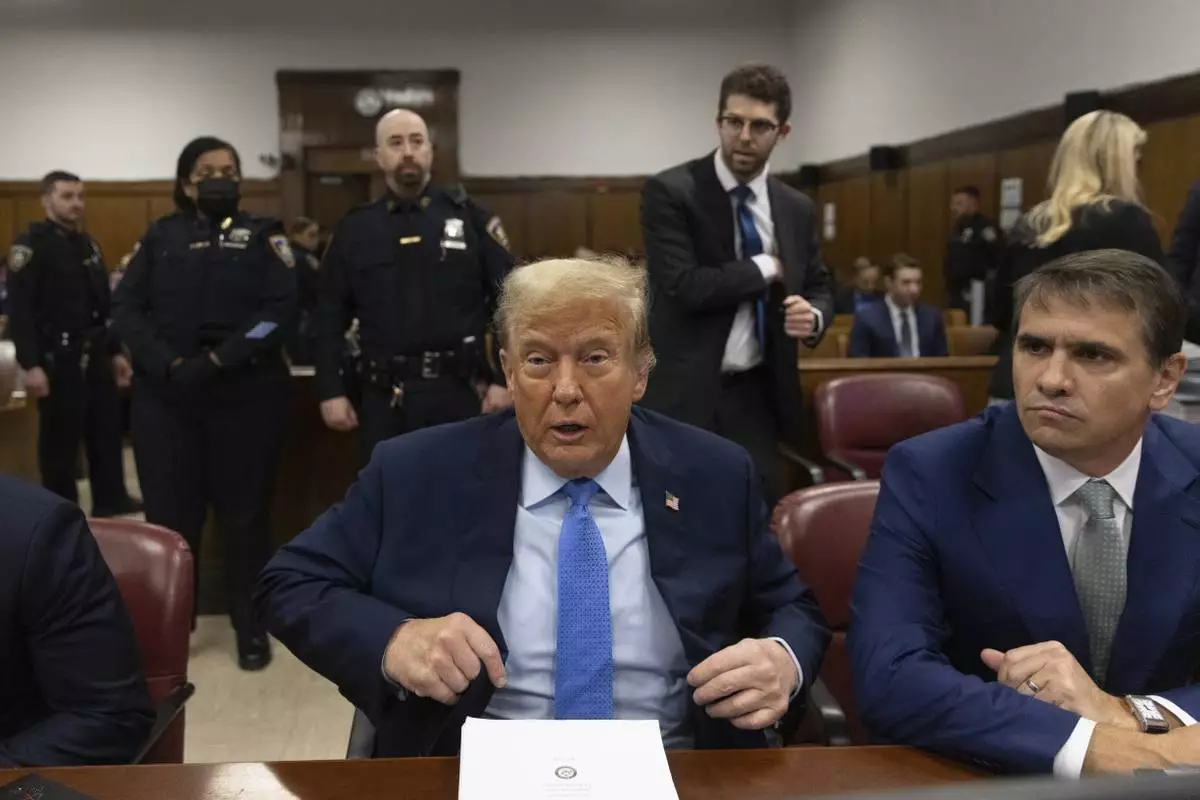
Former President Donald Trump appears at Manhattan criminal court before his trial in New York, Friday, April 26, 2024. (Jeenah Moon/Pool Photo via AP)
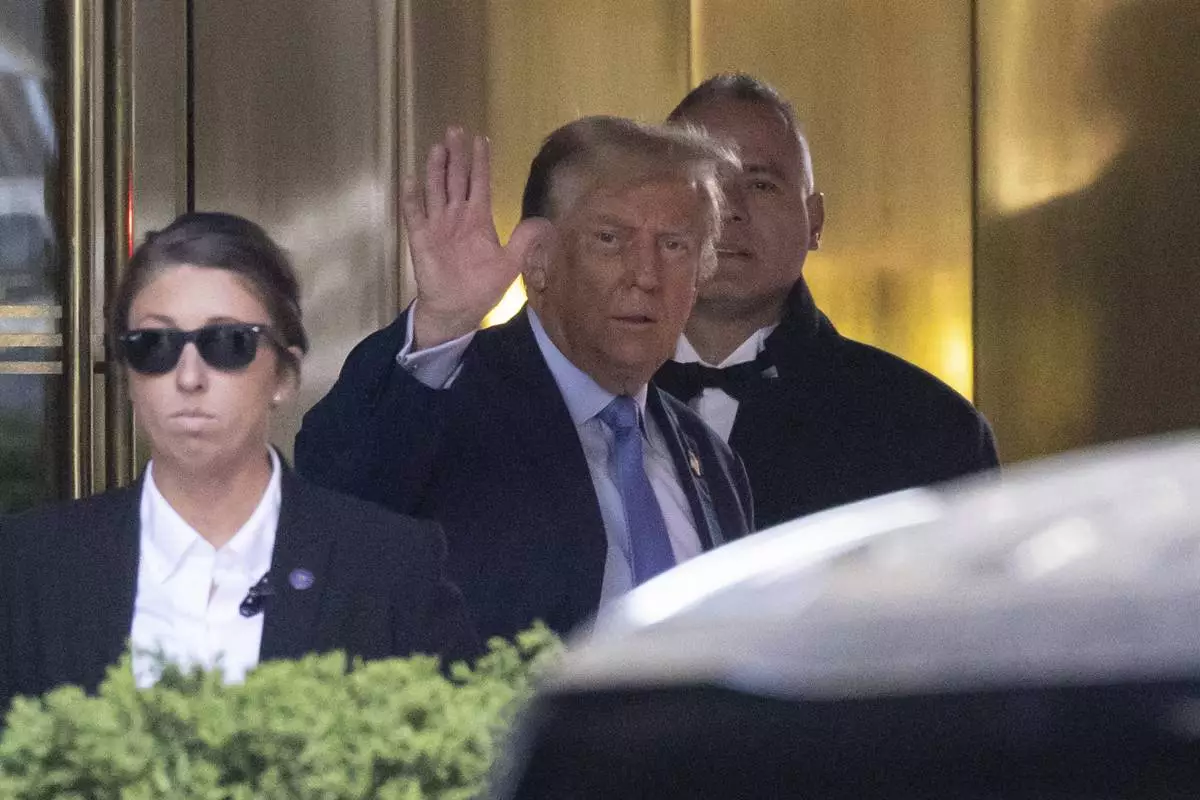
Former president Donald Trump leaves Trump Tower on his way to Manhattan criminal court, Friday, April 26, 2024, in New York. (AP Photo/Yuki Iwamura)
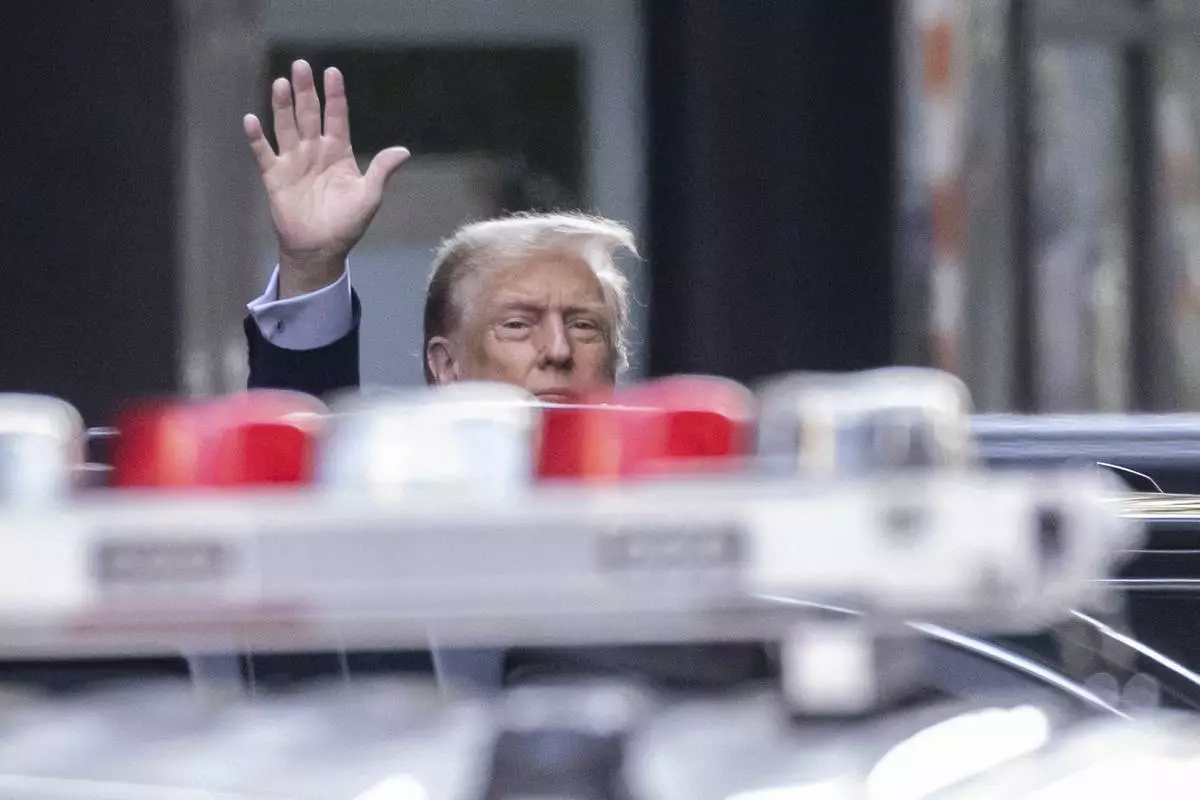
Former president Donald Trump leaves Trump Tower on his way to Manhattan criminal court, Friday, April 26, 2024, in New York. (AP Photo/Yuki Iwamura)


